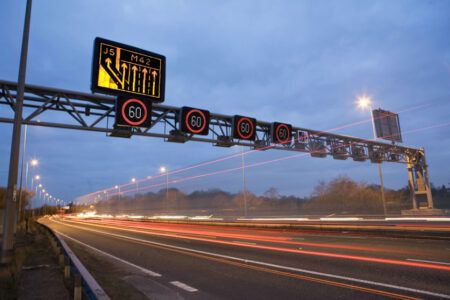The number of pedestrians killed on the USA’s roads last year is expected to remain relatively unchanged from 2013 and approximately 15% higher than it was in 2009. A new report, ‘Spotlight on Highway Safety: Pedestrian Traffic Fatalities by State’, released by the Governors Highway Safety Association (GHSA), is the first look at 2014 pedestrian fatality data, and highlights the need for continued vigilance as more of the population choose walking as their preferred mode of transportation. Using preliminary data provided by the 50 State Highway Safety Offices and the District of Columbia (DC), Dr Allan Williams, former chief scientist at the Insurance Institute for Highway Safety (IIHS), compared the number of pedestrian fatalities from the first six months of 2013 and 2014. Although the preliminary data indicate a slight (2.8%) decrease, after factoring in expected undercounting, Williams estimates that 2,125 pedestrians were killed in the first half of 2014, essentially unchanged when compared with the 2,141 pedestrian fatalities during the same period in 2013.
Williams pointed out that states with the most fatalities are primarily large-population states with large urban centers. Four states, California, Florida, Texas, and New York, accounted for 43% of all pedestrians deaths in 2013. Delaware and Florida had the highest rates of pedestrian deaths per 100,000 residents, at 2.70 and 2.56, respectively. In DC, pedestrians account for the highest percentage of all motor vehicle deaths (45%), followed by New York (28%), Nevada (25%), and Delaware (25%). However, the findings show some positives, with 24 states and DC recording decreases in pedestrian fatalities in the first half of 2014, compared with the same period in 2013, while five remained the same. Since 1975, there has been a 28% surge in deaths involving pedestrians ages 20 to 69, and about 70% of pedestrians killed in motor vehicle crashes are males, many of whom are struck at night and in the fall and winter months. Alcohol is also a factor in many of these fatal crashes. In 2013, 36% of pedestrians 16 and older involved in fatal crashes had blood alcohol concentrations (BAC) of 0.08 or higher. Distraction may play a role as well, since there is some evidence from FARS and emergency room data that both distracted driving and walking are contributing increasingly to pedestrian injuries and fatalities.
“This is a clearly a good news, bad news scenario,” said Jonathan Adkins, GHSA executive director. “While we’re encouraged that pedestrian fatalities haven’t increased over the past two years, progress has been slow. Protecting pedestrians is a priority for GHSA and our members; we’re determined to drive the number down to zero.”




